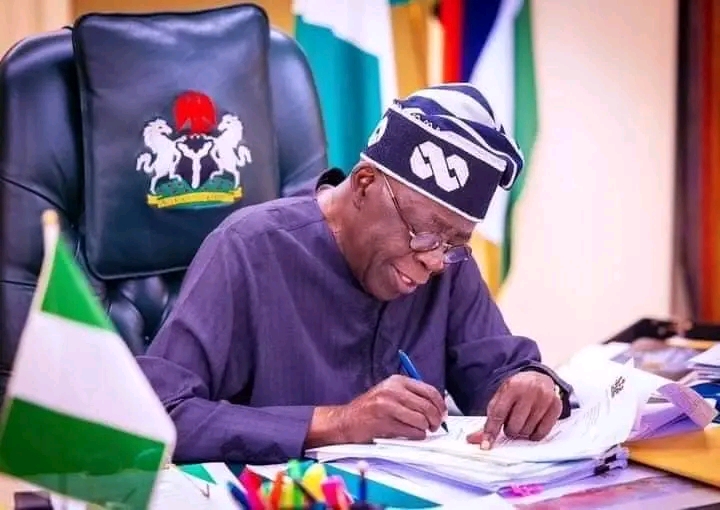Following the outbreak of Covid-19 pandemic in 2020 with its attendant negative consequences that shattered global economies, including Nigeria’s, various policies were formulated to stabilise the nation’s economy by the immediate-past administration of Muhammadu Buhari. The federal government had rolled out intervention policies to absorb the shocks associated with the pandemic.
The post Covid-19 period witnessed how the three tiers of governments struggled to cope up with low revenues. There were massive cases of oil theft occasioned by crashing price of crude oil at the international market which adversely affected government’s revenues generation.
Added to this, was the spike of insecurity in the North-west states where ravaging bandits held sway, abducted farmers and disrupted farming activities, resulting in food insecurity or crisis. The post Covid-19 era has been a tale of woes for successive governments. In a bid to meet its financial obligations, the Buhari government embarked on loans collection spree and incurred trillions of naira public debts.
After the Buhari government had exited power on May 29, it was estimated that Nigeria’s total domestic and foreign debts stood at N77 trillion. While the President Bola Ahmed Tinubu administration may have inherited a comatose economy, his “subsidy is gone” speech pushed cost of living to its zenith.
Premium motor spirit (petrol) is a product that determines the country’s economy. Even before the removal of petroleum subsidy, whenever the price of the product rises, there was corresponding rise of prices of goods and services. One imagines how the economy would fair with the sudden subsidy removal.
The removal of subsidy came shortly after the National Bureau of Statistics (NBS) released a damning report on multi-dimensional poverty index The report placed 133 million Nigerians as living below the poverty line. The Tinubu’s twin policies of subsidy removal and liberalisation of forex have failed to provide temporary relief to Nigerians.
Since May, when he was inaugurated and unceremoniously declared total removal of petroleum subsidy, Nigerians have been groaning in hardship. Food inflation has reached 27%, the highest since 2005.
The decision by the Central Bank of Nigeria, CBN, to lift the ban on the importation 41 items, including rice, meat, butter etc, which elicited mixed reactions is like being a “kobo wise but pounds foolish”. During the eight years of the Buhari government, Nigerians witnessed rice revolution in the country.
Through the CBN’s Anchor Borrowers programme, many rice farmers in Kebbi, Taraba, Kano, Ebonyi and Delta states were empowered. Local production of rice increased tremendously leading to the establishment of many paddy rice companies across the country.
Sadly, the Tinubu new policy of lifting the ban is capable of eroding the gains recorded by the last administration. Instead of relying on importation which kills our local production, government should diversify the economy, enhance security and infrastructure, and adopt viable monetary policies.
This will contribute to economic growth and eradication of poverty in the country. Economic history gives substantial evidence that agricultural revolution is necessary for economic growth and development, particularly in developing nations like Nigeria. The Nigerian economy’s fundamental problem stems from government’s failure to prioritise the agriculture sector over an oil-based monoeconomy.
Agriculture was the foundation of the Nigerian economy prior to the discovery, exploitation, and exportation of oil, which gave rise to an over reliance on oil revenues for economic expenditures. Between 1955 and 1969, agricultural exports accounted for around 72 per cent of the nation’s gross domestic product (GDP) before falling to 35 per cent due to the oil shocks of the early 1970s (CBN, 2002).
Between 1940 and 1950, Nigeria was one of the world’s leading exporters and producers of several important agricultural products. In 1960, records indicate that the export of agricultural products in Nigeria accounted for more than 75 per cent of the country’s overall exports.
This has altered in recent years, since Nigeria’s economic growth and development are now exclusively dependent on oil export earnings, which account for over 95 per cent yet contribute less than 25 per cent to the real gross domestic product (RDGP).
This excessive reliance on oil has negatively impacted the market dynamics and economic growth and development of the nation. The Tinubu administration should unlock the agriculture sector’s potential through a review of the last administration’s Anchor Borrowers programme.
There is the need for government to focus on granting low interest loans to farmers, subsidise agriculture products such as fertilisers, pesticides and farm implements. There is no gainsaying the fact that insecurity has hampered farming activities in the country.
Government should formulate effective security policies aimed at resolving farmers/herdsmen conflict and above all nipping into bud the menace of banditry in northern Nigerian.
The rising cost of living in Nigeria is a pressing issue that requires immediate attention and collective action. The Tinubu administration needs to implement effective policies that will address the run away inflation, stabilise the economy, and support sectors like agriculture that directly impact the lives of the people.
Additionally, good spirited individuals and organisations should step forward and contribute through philanthropy, job creation, and investments in local industries. Empowering the population through education and skill development is also crucial for long-term solutions.
By working together, the government and wealthy individuals can lesson the burden of the vast majority of impoverished Nigerians, provide them with opportunities for economic stability, and contribute to the overall well-being and development of Nigeria. It is only through collaborative efforts that we can create a more equitable and prosperous society for all Nigerians.
Ibrahim Mustapha,
Pambegua, Kaduna state
08169056963




